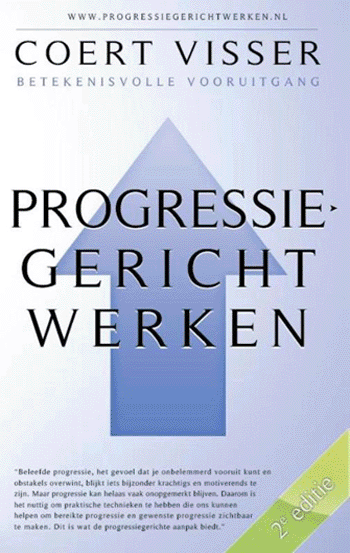Hoe progressiegerichte intervisie de wijsheid in een team kan stimuleren

In dit artikel beschrijf ik het werk van Igor Grossmann en zijn collega’s over het belang van wijs redeneren. Wijs redeneren heeft nog relatief weinig aandacht gehad in onderwijs en wetenschap maar het lijkt verstandig dit meer te gaan doen. Wijs redeneren is goed aan te leren en hangt samen met verschillende wenselijke uitkomsten zoals sociaal gedrag, welbevinden en genuanceerd denken. Het lijkt essentieel te zijn voor goed leiderschap en het kan helpen om complexe vraagstukken op te lossen en polarisatie tegen te gaan. Daarom lijkt het een goed idee om in onderwijs aandacht te besteden aan de ontwikkeling van wijsheid. Maar ook in organisaties kunnen we dingen doen om wijsheid te bevorderen. Een aanpak die hierbij goed kan werken, is progressiegerichte intervisie.
| Trainingen Progressiegericht Werken |
Progressiegerichte intervisie
Wat progressiegerichte intervisie inhoudt en hoe het precies werkt, beschrijf ik in dit artikel. Kort gezegd komt het neer op het volgende. In een team van zo’n 7 mensen is er één persoon die een casus inbrengt waar hij graag tips wil hebben van de overige teamleden. De intervisie verloopt via een aantal stappen, begeleid door een procesvoorzitter, en neemt in totaal zo’n 20 minuten in beslag. Per stap kunnen er meerdere rondjes worden doorlopen. In stap 1 presenteert de casusinbrenger zijn situatie en legt uit waar hij tips over wil ontvangen. In stap 2 is er gelegenheid voor de teamleden om feitelijke vragen te stellen aan de casusinbrenger om goed te begrijpen waar hun tips zich moeten richten. In stap 3 vertellen de teamleden wat hen aanspreekt in wat de casusinbrenger al heeft gedaan, heeft verteld of probeert te bereiken. In stap 4 geven de teamleden tips (die al dan niet geïnspireerd zijn op de progressiegerichte aanpak). In stap 5 vertelt de casusinbrenger welke paar tips het meest bruikbaar lijken en of de oefening nuttig voor hem was. Ten slotte vraag de procesvoorzitter aan de overige teamleden of zij het proces nuttig hebben gevonden.
Wijs redeneren
Wijs redeneren is vooral belangrijk wanneer er sprake is van complexe of onduidelijk gedefinieerde problemen of vraagstukken waar er geen sprake is een duidelijk gedefinieerde standaardaanpak of -oplossing. Grossman en zijn collega’s onderscheiden vier aspecten van wijsheid:
- intellectuele bescheidenheid,
- onderkennen van onzekerheid en verandering,
- het perspectief van andere mensen proberen te zien en
- verschillende perspectieven integreren.
Hoe progressiegerichte intervisie wijsheid bevordert
Aan de hand van de vier aspecten van wijsheid is te zien hoe progressiegerichte intervisie kan stimuleren.
- Intellectuele bescheidenheid en het onderkennen van onzekerheid en verandering worden gestimuleerd doordat teamleden casussen inbrengen waar ze graag tips over willen hebben. Het inbrengen van een casus vergt dat je je als teamlid kwetsbaar opstelt. Het feit dat je een casus deelt die je nog niet hebt opgelost en het feit dat je tips van anderen wilt hebben, vragen om en zijn tekenen van bescheidenheid en een uiting van het feit dat je nog niet weet hoe je het beste met de situatie kunt omgaan. Wanneer binnen een team regelmatig intervisie wordt gedaan en alle teamleden af en toe casussen inbrengen kan dit soort intellectuele bescheidenheid en onderkenning van onzekerheid gecultiveerd worden binnen het team.
- Verschillende perspectieven zien en integreren: het basisidee van de intervisieaanpak is dat de perspectieven van anderen gezocht worden. Steevast valt bij het doen van progressiegerichte intervisie op hoe verschillend de perspectieven van de verschillende teamleden kunnen zijn. Zowel in de complimentenrondjes (stap 3) als in de tipsrondjes (stap 4) komen vrijwel altijd heel verschillende ideeën naar voren waar bijna altijd voor alle teamleden ook verrassende complimenten en tips zitten. Over deze verschillende ideeën wordt trouwens niet gediscussieerd waardoor er geen welles-nietes situaties ontstaan en er geen polarisatie ontstaat. Bij het vaker toepassen van de progressiegerichte intervisieaanpak merk ik vaak dat er na verloop van tijd zowel een sterker teamgevoel ontstaat als een gemeenschappelijke kijk op normen en waarden. Dit laatste komt neer op het integreren van verschillende perspectieven.
Conclusie
Ik denk dus dat progressiegerichte intervisie de wijsheid binnen teams kan versterken. Als dat waar is, zou het ook zo kunnen zijn dat teamleden zich mede door de intervisie beter gaan voelen, dat ze genuanceerder over complexe problemen gaan nadenken en zich socialer op gaan stellen. Het klinkt denk ik als de moeite van het proberen waard, vind je niet?


1 Comment
Professional Workplace-Learning. Can Practical Wisdom be Learned?
https://link.springer.com/article/10.1007/s12186-020-09249-x
This article aims at investigating whether physicians can acquire and develop practical wisdom in their practices through structural case discussions focused on learning. Our starting point is that practical wisdom is essential to realize the moral purpose of professional care: to help each individual patient to alleviate her suffering and to promote her health in a way that is attuned to her individual personality and situation. In recent publications on learning practical wisdom after the formal curriculum, we have found two different opinions. Some authors claimed that practical wisdom can only be learned implicitly from experiences in the workplace; others that learning practical wisdom can also be accomplished intentionally in peer groups reflecting on their work. We have analyzed the lessons learned from 100 case reviews, recorded by the participating physicians themselves. The discussions had been organized in a Dutch general hospital during a twelve-year period. We have found that the joint practitioners really did acquire practical wisdom through reflection and deliberation, partly implicitly, partly explicitly. We have also discovered that they managed to translate practical wisdom into the infrastructure and the culture of collaborating groups, practices and the institutional work context. The results of this investigation have led us to formulate proposals to stimulate the learning of practical wisdom through reflection on everyday work in hospitals. Practical wisdom will foster the realization of the moral purpose of professional medical practices.